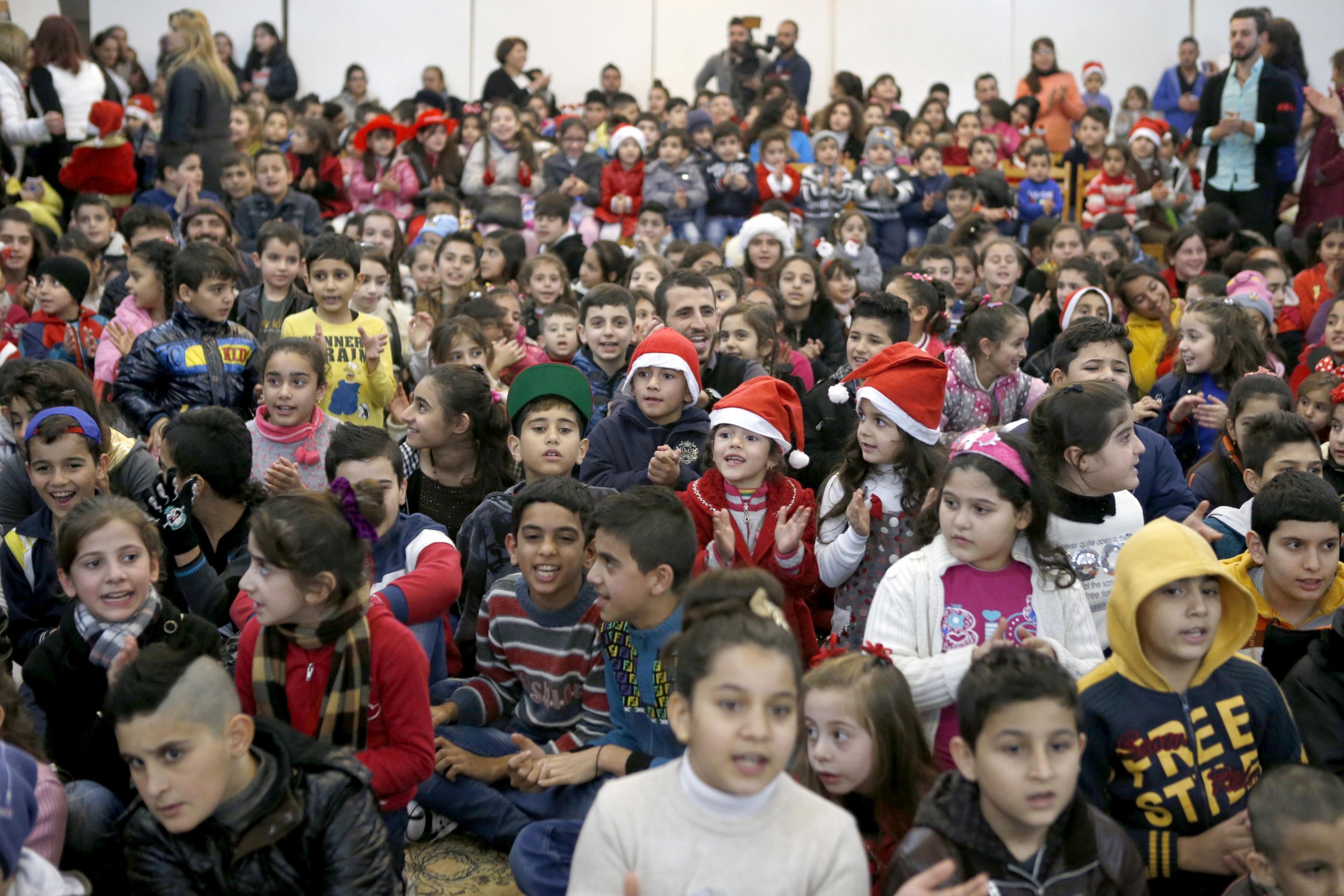
This article first appeared on the Cato Institute site.
"Syrians are everywhere," an aid worker told me. "Everybody is poor now."
Well over a million Syrians are scattered across Lebanon, many in small "tented settlements." Almost half live in substandard housing. Many lack fuel and warm clothes for the winter.
Jordan hosts even more Syrians at greater cost. (So does Turkey, though it is much larger and wealthier.) Six of every seven refugees live in poverty.
Almost five years of civil war have killed a quarter of a million Syrians, wrecked the country, created economic catastrophe, displaced millions and left virtually no one unaffected. As many as 5 million people have fled to surrounding countries.
Thus, the stampede of Syrian migrants to Europe should not surprise the rest of the world. Americans traditionally have offered sanctuary to those fleeing repression and war. But, apparently, not now.
Private relief groups offer the best means for Americans to help Syrians in need. There are many worthy organizations. Last year, I traveled with International Orthodox Christian Charities (IOCC) to Lebanon and Jordan to view several aid projects. Since 2012, the charity has helped more than 3.2 million Syrians throughout the Middle East.
Much of IOCC's work is conducted in Syria. More than half Syria's population now is estimated to require outside aid.
Assistance runs the gamut, starting with emergency food, infant care, clothing and bedding. IOCC repairs sanitation and water systems, helps provide shelter and supports education.
Alas, the longer the war rages, the greater the destruction. One aid official lamented: "Buildings can be rebuilt. You cannot rebuild human beings."
In Lebanon, I visited a project focused on mother-child nutrition, from conception up to 5 years of age. The "public health system was overwhelmed by refugees," explained Rana Hage of IOCC.
Children are screened, regularly measured and weighed and provided with nutritional supplements, high-protein foods and milk. Tens of thousands of children have been screened and hundreds have been rescued from malnutrition.
I visited a community kitchen, one of two that helps feed 1,750 people. IOCC underwrote a large, efficient cooking facility and hired local women to cook. Pots of food are distributed to needy refugee and resident families.
The charity also runs the water, sanitation and hygiene program at two refugee encampments with more than 7,500 people. I went to one of the settlements where IOCC is seeking to develop efficient and safe water and waste systems.
The agency also was establishing water/wash facilities while providing hygiene education to reduce disease. Here, as elsewhere, IOCC hires staff from areas being served. Unfortunately, the job is never done. Another aid worker said that the camp is "constantly changing as more people come."
Jordan may be less fragile than Lebanon, but it suffers greatly as well. Some 80,000 people are crowded into Jordan's Zaatari Refugee Camp, sitting only a few miles from Syria.
IOCC runs a program to prevent and treat lice problems, especially affecting children. The charity has distributed anti-lice kits to more than 20,000 kids. There's nothing glamorous about this sort of work, but it meets a critical need. Health coordinator Samer Makahleh explained: "To fill gaps we go to outside partners like IOCC."
With most refugees living outside the camps, IOCC works outside as well, even making home visits for those unable to travel. The group provides everything from school uniforms—required to attend Jordanian schools—to infant supplies and household items. IOCC also provides vocational training and English instruction.
IOCC's identity is Christian, but it serves the needy without discrimination. In the Middle East, the charity mostly aids Muslims.
Of course, even the best humanitarian efforts can only do so much. One top IOCC official worried: "Funding is going to diminish next year. Donors are not going to be there."
As I wrote in Forbes: "Unless more Americans and other people of goodwill around the world step up to address Syria's humanitarian disaster. Centuries ago Christ called on his listeners to help the 'least among us.' We must meet that challenge today."
Doug Bandow is a senior fellow at the Cato Institute.
Uncommon Knowledge
Newsweek is committed to challenging conventional wisdom and finding connections in the search for common ground.
Newsweek is committed to challenging conventional wisdom and finding connections in the search for common ground.
About the writer
To read how Newsweek uses AI as a newsroom tool, Click here.








